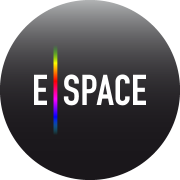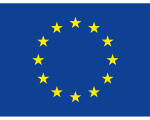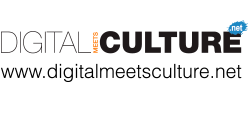Coventry (UK), St. Mary’s Guildhall, 2nd March 2015, h. 9.30 – 17.30, including an evening reception with networking session h. 18.00 – 19.30
A 3-module workshop about Intellectual Property and related technology: this workshop focused on digital cultural content rights in a non-traditional way, aiming at making content providers aware of technical frameworks and advances that support to better manage the licenses. Speakers: Sarah Whatley (Coventry University, project’s coordinator), Charlotte Waelde (University of Exeter), Prodromos Tsiavos (Postscriptum), Frederik Temmermans, Peter Schelkens, Ann Dooms (iMinds).
Flyer of the workshop including agenda of the day (PDF, 515 Kb)
Read the Chronicle of the event HERE
Identifying Rights Clearance and Hybrid Licensing Models for the Creative Industries
(Prodromos Tsiavos)
The issue of the appropriate licensing regime for cultural content is perhaps one of the hottest topics in Copyright literature and practice. The question of whether cultural content should be released under an open, such as Creative Commons, licence or some form of all rights reserved licence is one that closely relates both to technological developments and the degree of innovation of the related business model. However, what is frequently overlooked in this debate is that the information we have regarding the rights themselves is very scarce. We do not have clear and processable information regarding the type of rights, the rights owners or maturity of the rights. Hence, the question of licensing involves only a fragment of the available material, particularly in the audiovisual sector, which is the faster growing type of content over the Internet. In addition, we urgently need simple models for choosing the different types of licensing that could support different types of value creation. This presentation provides an overview of the efforts that have been made to document copyright and other similar rights in machine processable form and presents a simple model for reducing clearance costs. In addition, it presents a set of simple value production models that relate to different licensing types closing thus the “virtuous cycle” of cultural and creative content production.
Watermarking: state of the art and applications
(iMinds)
Most digital images contain metadata that describes several aspects of the image, such as dimensions, copyright information, localization etc. This metadata can however easily be changed or removed using simple image editing software. Watermarking allows to embed small amounts of information in the raw pixel data of a digital image rather than in the metadata headers. The information is embedded in such a way that it is difficult to remove and the changes to the image are almost invisible to the human eye. The embedded information can contain textual metadata, such as a copyright statement, or a unique ID referencing to a database that contains more extended metadata. This workshop will give an overview of the state of the art in watermarking techniques, highlighting possibilities as well as limitations. In addition, concrete examples and demonstrators will be presented to show how watermarks can be used in context of image right management.
JPEG technologies for security and interoperability
(iMinds)
The Joint Pictures Experts Group (JPEG) is a standardization committee working on still image standards. It is a joint working group of the International Standardization Organization (ISO) and the International Electrotechnical Commission (IEC). The committee is well known for its JPEG image file format used by a majority of digital images. Also JPEG 2000 has successfully been adopted in several domains, such as medical imaging, geographic information systems (GIS) and high-resolution art reproductions. In addition to the coding standards, JPEG defines technologies for crucial aspects of the image live cycle, such as transmission, protection, meta-data representation, annotation and interoperable search. Currently, JPEG is working on homogenizing these technologies over its different coding standards. During this workshop, both existing as standards in progress will be presented. The workshop will illustrate how they can be adopted to enrich the rights labeling experience by providing new security measures and improving interoperability and flexibility.
































